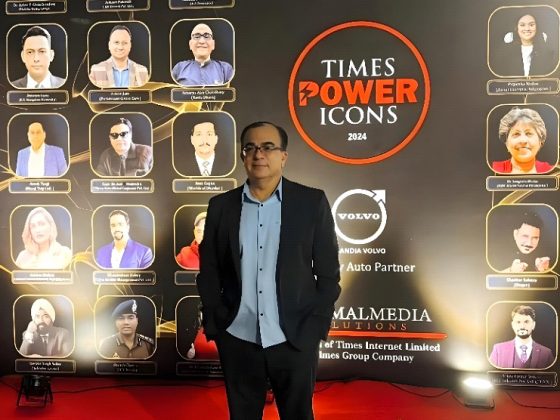Navigating The New Frontier Aditya Pandey On Legal Challenges & AI in Indian Advertising – Mr. Aditya Pandey Advocate
Q: What are the legal frameworks in India that currently address false advertising in ecommerce, and how do they apply to AI-driven advertising?
In India, the legal framework addressing false advertising, including AI-driven advertisements, is primarily governed by the Consumer Protection Act, 2019 and regulatory bodies like the Advertising Standards Council of India (ASCI), the Competition Commission of India (CCI), and the Bureau of Indian Standards (BIS). Under Section 2(28) of the Consumer Protection Act, a misleading advertisement is defined as one that falsely describes a product or service, offers a false guarantee of quality, makes deceptive representations, or deliberately conceals essential information. This definition extends to AI-generated advertisements, which, if found to misrepresent facts or omit crucial details, could lead to penalties under the Act. The ASCI and the Ministry of Information and Broadcasting also issue guidelines to regulate advertisements, ensuring they are truthful and non-deceptive. Additionally, the CCI is empowered to investigate and penalise companies engaging in unfair or deceptive advertising practices, incluing those using AI-driven tools. Specific guidelines from the Central Consumer Protection Authority (CCPA), issued on June 9, 2022, emphasise preventing misleading advertisements and endorsements. These guidelines cover various aspects, such as prohibitions on false claims, responsibilities of advertisers and endorsers, due diligence requirements, and necessary disclosures. For AI-generated ads created by tools like Copy.AI and Jasper, adhering to these guidelines is crucial to avoid misrepresentations. Failure to disclose AI’s role in creating content or proving false guarantees about a product or service could lead to severe consequences, including statutory damages or injunctions against the use of misleading advertisements. Therefore, AI-driven advertising must ensure compliance with Indian laws to prevent deceptive practices and protect consumer rights.
Q: How does Indian law define “false advertising,” and would the use of AI to generate misleading content change that definition in any way?
Section 89 of the CPA, 2019 penalizes misleading advertisement which also apply to E-Commerce. “Any manufacturer or service provider who causes a false or misleading advertisement to be made which is prejudicial to the interest of consumers shall be punished….”. Use of AI doesn’t necessarily require a change of definition per se, however, it introduces new complexities in terms of responsibility, dealing with non-intentional deception, managing the rapid creation of content and addressing issues related to personalized advertising. the application of the law may need to evolve to effectively address these AI-specific challenges. Regulators and courts might need to adapt their interpretations and potentially develop new guidelines to ensure consumer protection in the age of AI- driven advertising. Creation of content and addressing issues related to personalised advertising. Applying the law may need to evolve to address these AI-specific challenges effectively. Regulators and courts might need to adapt their interpretations and potentially develop new guidelines to ensure consumer protection in the age of AI-driven advertising.
Q: What legal liabilities do e-commerce platforms and sellers face if AI is used to create false or misleading advertisements?
Under Indian laws, e-commerce platforms and sellers face significant legal liabilities if AI is used to create false or misleading advertisements. The primary legal frameworks that apply include the Consumer Protection Act, 2019, which prohibits misleading advertisements and empowers authorities to impose penalties such as fines and imprisonment. Platforms must also ensure advertisements comply with advertising standards, and failure to do so can result in legal action from regulators or consumers.
Q: In cases where AI autonomously generates false claims or misleading content, how would the responsibility be attributed?
Is it the platform, the developer, or the user of the AI? It is clear that the developer of the AI would be held accountable if the system is designed in a way that leads to the generation of deceptive content, particularly if they did not disclose limitations or risks associated with the AI’s outputs. However, the AI Models lay down in their terms that they are not liable for content generated by the AI and that the AI Model may generate content which is incorrect. This concept is called “Hallucinating” information. Liability could fall on the users of AI if they knowingly use AI to create false claims, as they are responsible for the content they publish. The e-commerce platform may also bear responsibility, especially if it fails to implement adequate monitoring or compliance mechanisms to prevent misleading advertisements, as outlined in the Consumer Protection Act, 2019.
Q: Are there any notable case studies in India or globally where AI-generated false advertising has led to legal action or regulatory intervention?
One prominent case involved AI-generated video scams in the United States, where consumers were misled into believing that celebrities like Taylor Swift were endorsing products, such as Le Creuset cook ware, through AI-generated representations of their likenesses and voices. This prompted scrutiny from regulatory bodies like the Federal Trade Commission (FTC), which expressed concerns about the mislead ing nature of such advertisements and the potential for deepfake technology to deceive consumers.










